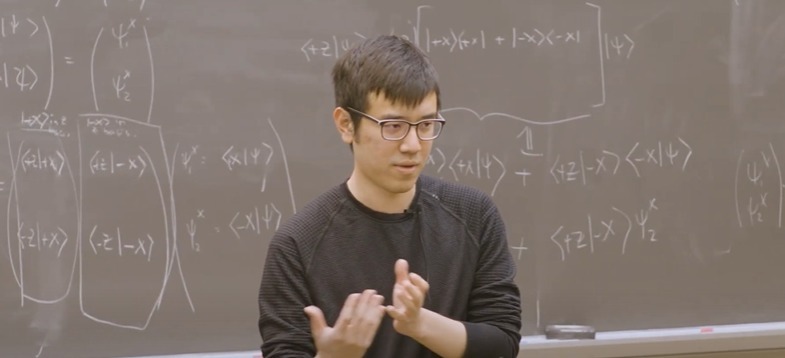Stanley Tang stays out of the news. He is unlikely to be included in a tech convention video that goes viral, tweets infrequently, and avoids oversharing. Still, he has quietly and steadily helped to build one of the most recognizable delivery systems in North America. As of May 2025, Forbes estimates his net worth to be $1 billion, a significant drop from its peak of $2.2 billion following DoorDash’s initial public offering in December 2020. That being said, it is a very strong financial base for a 32-year-old products architect, and it is a powerful reminder that power can be used effectively without needing to be showy.
In 2013, Tang took on the role of the builders’s builder, which is frequently disregarded by people outside the tech sector, after co-founding DoorDash with Tony Xu, Andy Fang, and Evan Moore. While Xu took center stage as CEO, Tang focused on developing their relationship behind the scenes. By simplifying backend logistics and interfaces, he has been changing the daily usage of delivery apps by millions of users. Since the beginning, Tang has been coding the beat for DoorDash, and in the past ten years, the company has gone from a dorm room struggle to a household mainstay.
| Field | Details |
|---|---|
| Full Name | Stanley Wei Rui Tang |
| Date of Birth | October 27, 1992 |
| Age (as of 2025) | 32 years |
| Place of Birth | Hong Kong |
| Citizenship | United States |
| Current Residence | San Francisco, California |
| Education | B.A./B.Sc. in Computer Science, Stanford University |
| High School | King George V School, Hong Kong |
| Profession | Tech Entrepreneur, Product Designer |
| Known For | Co-founder & Chief Product Officer at DoorDash |
| Net Worth (2025) | $1 Billion (Forbes) |
| Company Founded | DoorDash (2013) |
| Major Milestone | DoorDash IPO in December 2020 ($2.2B valuation) |
| Co-founders | Tony Xu, Andy Fang, Evan Moore |
| Trivia | Plays high-stakes poker with Neymar |
| Social Media Presence | Instagram: @stanleytang |
Many early-stage tech founders use visibility as a strategy to attract media, talent, and funding. Tang declined to take part. Instead of utilizing the internet to disseminate his message, he focused primarily on systems and structure, producing electronic products with surgical precision. At each manufacturing cycle and feature launch, he prioritized design logic and user empathy over self-promotion.

Tang’s decreasing wealth over the past few years has been more due to shifts in the overall market than to mistakes made by the individual. Since the delivery boom of the pandemic, prices in the tech sector have become much more normalized. Once the pinnacle of gig-driven comfort, DoorDash has expanded into a significant logistics player that is facing growing criticism for everything from automation ethics to labor practices. Despite these developments, Tang remained remarkably composed and was often seen playing high-stakes poker with Neymar, the legendary Brazilian football player, rather than speaking on tech panels about policy.
His love of poker reflects his business philosophy and is more than just a diversion. It is easy to transfer skills that are prized on the felt, such as timing, pattern recognition, and taking risks, to the startup environment. Tang’s ability to decipher codes and situations has been very helpful. He showed early signs of business tenacity and inventiveness when he wrote Million Dollar Blog as a teenager. The same vision continues to guide DoorDash’s expansion strategy in a fiercely competitive market.
What sets Tang apart is his deep enthusiasm for a new philosophy of IT leadership. While flashy disruptors usually make headlines, Tang is an example of an emerging breed of modest but successful builders, especially among Asian-American entrepreneurs. Together with co-founder Tony Xu and Zoom’s Eric Yuan, Tang embodies a shifting narrative in which performance and tenacity replace showmanship and vanity. For ambitious entrepreneurs in Asia and North America, his story provides an especially inspiring road map: be present, deliver consistently, and let the product speak for itself.
By staying out of the spotlight, Tang has increased his influence rather than decreased it. Among the few but telling glimpses into his life that we are given are a humorous post from a Y Combinator birthday party, a sunset in Santa Barbara, and a poker table in São Paulo. These scenes depict a deliberately peaceful, thought-provoking, and international lifestyle.
But his lack of response begs the interesting question: is he underestimating cultural worth at a time when opportunity is often accelerated by influence? Perhaps. However, Tang seems unconcerned. The trade is more important to him than the camera.
That philosophy is important considering the effects of what DoorDash has become. From being a convenience app, it has developed into an urban infrastructure that is changing how time, food, and commerce flow through cities. Delivery orders are now crucial to the survival of once-struggling restaurants. Workers without jobs turned to flexible gig work. Tang has helped create mechanisms that continue to impact economic opportunity in concrete and measurable ways, despite his reserved manner.